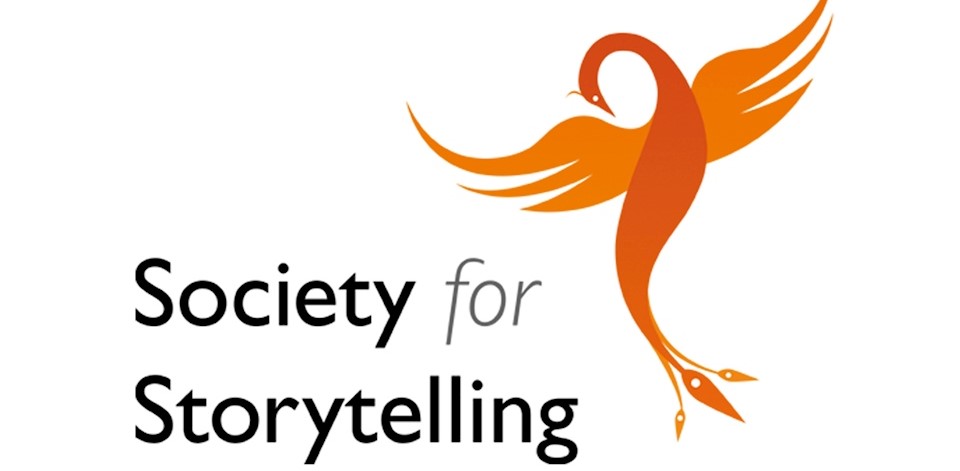
In celebration of the upcoming National Storytelling Week (27 January – 4 February), Afrouz Zibaei shares the stories of the Kurdish refugees she interviewed as part of her ongoing research into the impact of the refugee process among Kurdish refugees in Finland.

Photo credit: www.thehistorypress.co.uk/local-history/storytelling/
“Our past life as refugees has left a permanent mark on my heart”.
(Narenj)
This study examines the context of Kurdish refugees who have migrated to Finland, to investigate the impact of the refugee process. Kurdish people have migrated to the country since the beginning of the 1970s. Kurdish refugees who have fled to European countries have often experienced violence, persecution and having their human rights ignored in their home countries, thereby increasing their vulnerability to problems associated with acculturation and mental health. It is estimated that more than 2 million Kurdish people currently live in Europe. The number of Kurdish people in Finland is estimated to be around 16,603.
A qualitative life story interview was used to investigate issues related to the refugee process, reported by 15 Kurdish refugee men and women in Finland. This research has investigated the life stories told by Kurdish refugees, focusing on aspects of acculturation and mental health issues. Placing the life story of Kurdish refugees at the heart of this study, I conducted life story interviews with 15 people (5 women) and (10 men) who had migrated to Finland. Their interviews were recorded, transcribed, and analysed using the Listening Guide (LG). An analytical step called “Letting Stories Speak” was developed to listen to the challenges and experiences of the Kurdish refugees during their refugee process.
They described the challenges and experiences related to their refugee process during the three periods of their life and, including their experiences in Finland. The study’s exploration, conducted through life story interviews, is mainly concerned with the impact of the refugee process on acculturation and mental health issues that are challenged and experienced by Kurdish refugees during different periods of their lives and in their new home, Finland. The life story interview has dominated the contemporary understanding of the Kurdish refugee theme. Most of the interviews were conducted in person at the participants’ homes.
Below are two examples of the stories told by interviewees in the course of the research, showing the value of the storytelling approach as National Storytelling Week is marked in the UK.
Gulzar, a 38-year-old woman, had spent around eighteen years in Finland at the time of this study. At the age of thirteen, Gulzar became a refugee when her brother requested that she come to Sweden, where he lived. As life in Syria was no longer safe from danger, she decided to move to Sweden for a better life and future. This was by no means a pleasant experience. She was faced with a host of terrifying experiences including imprisonment during travel, having to walk long distances, sleeping in unfamiliar places, getting acquainted with human smugglers, feeling lonely, missing her mother, and crossing different countries. Two of her siblings, who were several years older than her, accompanied her. As they were underage and had no previous experience, they were settled in a children’s home as soon as they arrived in Sweden. She got married and moved to Finland. She learned Finnish and started to study, deciding to learn sociology. After marrying, she gave birth to a boy and a girl. Eight years later, the couple divorced, and her children now live with their father. She remains in Finland to be near her children. To relieve herself of loneliness, she tries to write poems, reads books and listens to music. Gulzar can speak several languages, and she is working as a translator in Finland. She wishes one day to belong to her own country – as a free Kurdistan.
Farshad, a 46-year-old man, is a participant who had been living in Finland for twenty-four years at the time of the study. Farshad says that he is a refugee child as he left his native place in Kurdistan in Iran at the age of five and does not have any memory of it. His family is unable to contact his relatives who live in the Kurdistan part of Iran. A political activist, his father took them to Iraqi Kurdistan as Iran was unsafe for them. He experienced several difficulties while constantly moving from place to place in Iraq as his father did not feel safe. This is possibly why Farshad does not remember having any close friends. He studied at different schools in Iraq, and later, he and his family fled to Turkey. However, he lost two brothers and his father during the move. Two years later, the remainder of his family moved to Finland as asylum seekers, and he shouldered the responsibility of caring for his mother and two other brothers. They have lived in Finland for twenty-five years, and his mother continues to wait for his father and two lost brothers. He tried very hard to adapt to the new culture and society, but his family found it much more difficult to do so. He learned Finnish and after several years studied very hard to achieve his dream of becoming a journalist, but his efforts were in vain. Shortly after settling down in Finland, he turned to political activism to help Kurdish refugees, including gathering them together so they would not suffer from loneliness. He also went into schools to talk about refugees. Now, he works in a factory and dabbles in translation work during his free time.
If you have been affected by any of the issues raised in this post, you may find the following links helpful:


